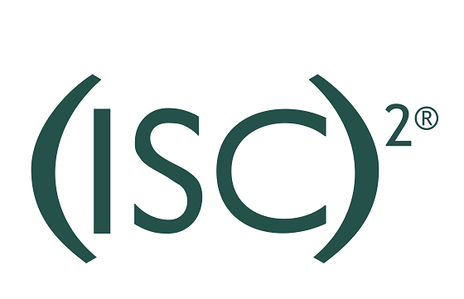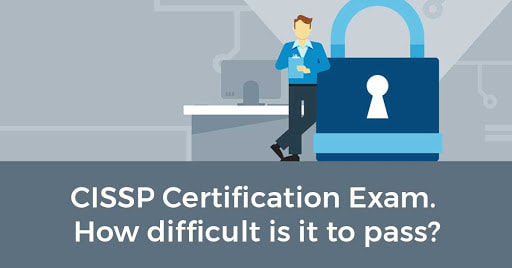Beginners Guide: How to Become a Certified Information Systems Security Professional (CISSP)
The cybersecurity industry is highly competitive, and one of the best ways to stand out from the crowd is to get certified by a prestigious certification body. The Certified Information Systems Security Professional (CISSP) certification by (ISC)² is one of the most sought-after certificates in the world of cybersecurity.
If you’re planning on pursuing the CISSP certification, we’ll walk you through everything you need to prepare for the exam in our complete beginner’s guide. We’ll also demonstrate how this certification can support your professional goals and whether it’d be the right choice for your current career stage.
If you’re planning on pursuing the CISSP certification, we’ll walk you through everything you need to prepare for the exam in our complete beginner’s guide. We’ll also demonstrate how this certification can support your professional goals and whether it’d be the right choice for your current career stage.
What Is the Certified Information Systems Security Professional (CISSP) Certification?
The Certified Information Systems Security Professional (CISSP) certification is one of the most widely-acclaimed certificates in the world of cybersecurity. The certification is offered by (ISC)².
|
About (ISC)²
The International Information System Security Certification Consortium or (ISC)² is the world’s leading non-profit organization providing training and certification in various fields related to cybersecurity, including information security, software security, and infrastructure security. It was founded in 1989 and is currently based in Clearwater, Florida, USA. There are over 140,000 (ISC)² members all over the world. |
Along with the CISSP certification, (ISC)² offers a wide variety of high-profile certificates in the various fields of cybersecurity, including HCISSP, CAP, CSSLP, CCSP, CISSP, and SSCP.
CISSP Certification Requirements
Here are the official (ISC)² requirements that you need to attempt the CISSP certification exam:
|
Work Experience
To become eligible for pursuing the CISSP certification, you need to have at least 5 years of work experience in 2 or more security-related domains, including:
|
Both full-time and part-time work experience is taken into consideration. However, they're not treated equally. For instance, in order to acquire one month of full-time work experience, you need to work 35 hours/week for 4 consecutive weeks.
On the other hand, part-time work experience is calculated differently, where 1040 hours of part-time experience are equivalent to 6 months of full-time experience and 2080 hours of part-time experience are similar to 12 months of full-time experience.
Internships do count as work experience, too, provided that you’re capable of providing the necessary documents that confirm your internship position.
On the other hand, part-time work experience is calculated differently, where 1040 hours of part-time experience are equivalent to 6 months of full-time experience and 2080 hours of part-time experience are similar to 12 months of full-time experience.
Internships do count as work experience, too, provided that you’re capable of providing the necessary documents that confirm your internship position.
|
Education
If you hold a 4-year college degree or an information security degree from the U.S. National Center of Academic Excellence in Information Assurance Education (CAE/IAE), you can substitute it for one year of work experience. Additionally, you can exclude one year of work experience if you hold another official certificate from (ISC)², such as Certified Forensic Computer Examiner (CFCE), GIAC Certified Intrusion Analyst (GCIA), or Certified Authorization Professional (CAP). |
If you're still at an early stage of your career and don't have relevant work experience, we highly recommend that you check the Associate of (ISC)² certification. This certification has less strict requirements and is targeted towards entry-level cybersecurity professionals. Not only will it prepare you to become a CISSP in the future, but also advance your career to a higher level.
On the other hand, if you have less than 2 years of experience as an IT security professional, consider opting for the (ISC)² Systems Security Certified Professional (SSCP) certification. It’ll help you take on job roles that provide you with the needed work experience to apply for the CISSP certification exam.
Alternatively, you can pursue certificates like Network+ and Security+ from CompTIA to be considered for CISSP-qualifying jobs.
On the other hand, if you have less than 2 years of experience as an IT security professional, consider opting for the (ISC)² Systems Security Certified Professional (SSCP) certification. It’ll help you take on job roles that provide you with the needed work experience to apply for the CISSP certification exam.
Alternatively, you can pursue certificates like Network+ and Security+ from CompTIA to be considered for CISSP-qualifying jobs.
CISSP Application Process
|
Your CISSP application process isn’t a simple online form that gets approved automatically. A certified (ISC)² member will audit your application and validate the information you’ve provided. Just make sure that the information and documents you submit are 100% accurate.
If your application was found to contain false information, it'd be rejected, and you might not be able to apply for the exam again. This is a crucial step, and it must be taken very seriously if you want your application to get approved. |
Who Should Become a CISSP?
The CISSP certificate would be an excellent way for you to develop your skills if you currently occupy any of the following job positions:
However, it’s worth pointing out that deciding to pursue the CISSP certification isn’t something you should do overnight. It’s a long and expensive journey, so only go for it if you’re 100% sure that the certification aligns with your career goals.
CISSP Benefits
|
Better Job Opportunities
Becoming a certified CISSP is regarded as a significant milestone in the career of a cybersecurity professional. By being a CISSP, your job options will definitely increase, both regarding salary and relevance. It’s basically your ticket to becoming the best of the best in the industry. Skill Development
Pursuing the CISSP certificate requires you to go through a long learning journey that’ll remarkably enrich your knowledge. Throughout your preparation steps, you’ll learn the ins and outs of the whole cybersecurity field. Validation
Having the CISSP certification on your CV speaks volumes about your work experience and knowledge. By becoming a CISSP, you’ll gain more confidence in your skills and have what it takes to impress your employer. Additionally, once you successfully pass the CISSP exam, get the endorsement, and receive your certificate, you’ll automatically become a member of (ISC)². |
Learning Outcomes
|
The primary goal of the CISSP exam is to assess your expertise in the fundamentals of information systems security. Here’s everything that you’ll have learned after you complete the study materials and pass the CISSP exam:
|
- The principles and standards of designing and securing networks, applications, and operating systems
- How to apply the principles of security design in implementing rigorous system security protocols to protect your organization against vulnerabilities that cyberattacks could exploit
- Cryptography’s security services and their relevance in the digital world
- The Software Development Lifecycle (SDLC) and the System Life Cycle (SLC), and how to make them more secure
- The principles of risk management and mitigation
- Utilizing the right security countermeasures to boost your organization’s functions and efficiency
- Meeting your organization’s security requirements by implementing key access control models
- The most popular designing and validating test strategies used in business
- The basic terminology used in applying logical and physical access controls
- How network and communication systems work by being aware of their basic elements
- The fundamentals of secure design by implementing the most suitable physical security protection measures in various scenarios
It’s worth noting that this is just a brief overview of the CISSP body of knowledge. You can check out the CISSP common book of knowledge for a more detailed look at the syllabus.
How Hard Is It to Get a CISSP Certification?
|
The CISSP certification is by no means an easy one. According to several cybersecurity news websites, the pass rate of the CISSP exam is roughly 20%, which is very low compared to other certifications in the field. This means that most candidates will need to re-attempt the exam at least one more time to pass it.
|
While the CISSP exam isn’t a walk in the park, you can still pass it from the first attempt if you dedicate enough time and effort to your preparation journey. The training program and eBook you choose can also have a huge impact on your chances of securing a passing score.
Nevertheless, don’t let the CISSP failure rate demotivate you. Most of the time, CISSP candidates don’t get a passing score simply because they didn’t prepare well.
Nevertheless, don’t let the CISSP failure rate demotivate you. Most of the time, CISSP candidates don’t get a passing score simply because they didn’t prepare well.
Preparing for the Exam
Here are the details of the CISSP exam:
Here are the details of the CISSP exam:
Once you register for the exam, you’ll get links to practice tests, a study guide, the official Study App, and other resources.
In addition to the self-study materials, you’ll need to enroll in a well-rounded training program with mock tests to help you prepare for the actual exam. Mock tests are probably the best way to prepare for the CISSP exam because the questions can be tricky. Some questions may even have more than one “correct” answer, but only one of them is the “best” one.
In addition to the self-study materials, you’ll need to enroll in a well-rounded training program with mock tests to help you prepare for the actual exam. Mock tests are probably the best way to prepare for the CISSP exam because the questions can be tricky. Some questions may even have more than one “correct” answer, but only one of them is the “best” one.
|
Endorsement
Passing the CISSP test isn’t the final step of earning your CISSP certificate. After you successfully pass the exam, you need to ask an active (ISC)2 certificate holder to assess your work experience and fill out an endorsement application form for you. Once the endorsement is approved, you’ll receive your certificate. |
The tricky part is finding a CISSP to endorse you. One easy way to do that is to search for “CISSP” on LinkedIn and send a direct message to some CISSP holders and ask them for endorsement.
CISSP Costs
|
The CISSP exam costs $699. However, keep in mind that the costs may vary depending on where you take the exam. It’s also worth mentioning that you may need to pay a $50 fine if you had to reschedule the exam. If you decided to cancel your exam, you’d have to pay a $100 fine.
On a side note, the cost of getting a CISSP certificate isn’t only limited to the exam fees. You’ll need to invest in a training program, which can set you back multiples of the exam’s cost. The official training course on the (ISC)² website costs a whopping $2,795, but of course, you can opt for other cheaper training programs offered by third-party platforms. |
Just make sure that the training provider is trustful and has a lot of positive reviews from individuals who’ve passed the CISSP exam.
How Much Does a CISSP Make?
|
According to (ISC)², the average global annual salary of a CISSP is $92,639. However, the mean salary may rise or fall if we take the average of a specific region. For instance, in North America, CISSPs earn an average of $120,552 per year, while in regions like Europe, Middle East, and Africa, that number goes down to $81,568 per year.
Similarly, based on the data collected by payscale.com, the average annual salary of a CISSP in the United States is $115,082, which is roughly the same as the official numbers of (ISC)² for North America. |
Your location isn't the only aspect that could influence your salary, though. Many other factors should be considered, like your years of experience, skills, industry, and company. Interpersonal skills can make a huge difference, too.
CISSP Retake Policy
|
Maintaining your CISSP certification is somewhat challenging compared to other certifications. To keep your CISSP certification, you need to earn 40 continuing professional education (CPE) credits every year over a 3-year period. Here are some of the activities that can help you get the required CPEs:
|
- Attending courses and seminars
- Publishing in security journals
- Becoming a security instructor
- Participating in security conferences
- Volunteering in security-related activities
- Becoming a member of an association chapter
- Enrolling and completing academic courses
This may sound overwhelming, and to be honest, maintaining your CISSP certification requires a lot of hard work. However, the whole point of maintaining your certification is to stay up to date with the latest trends in the cybersecurity industry. There’s no point in getting a certificate in such a fast-evolving field, then forgetting about it altogether.
This will significantly impact your career because your job performance will increase by continuously developing your skills.
Maintaining your certification is so important that (ISC)² actually highlighted it in its code of ethics, which states that all professionals who earn a certificate from (ISC)² are committed to treating it as a privilege that must be maintained.
As for the associated fees, you'll have to pay $85 every 3 years to update your certificate.
As for the associated fees, you'll have to pay $85 every 3 years to update your certificate.
Demand and Career Prospects
|
Becoming a certified CISSP isn’t an easy achievement, and a limited number of cybersecurity professionals hold this credential, which explains why the demand for CISSP holders highly exceeds supply.
Once you earn the CISSP certification, getting a new job or promotion should be easy for you. It’s definitely one of the best ways to impress your potential employers because they’re fully aware of what it takes to acquire this certification. |
According to the (ISC)² Cybersecurity Workforce Study, there’s a global shortage of almost 3 million cybersecurity professionals.
What Comes Next After CISSP?
|
Acquiring the CISSP certification is an outstanding achievement. However, it’s not the end of the line for IT professionals who want to go above and beyond in their careers.
After becoming a CISSP, you should consider multiple certifications to pursue down the line depending on the industry you want to specialize in. Most CISSPs take one of the following 3 career paths: The Technical Path
If you decide to take the technical path, consider pursuing certifications like CompTIA’s Pentest+, EC Council’s CEH, and SANS certificates. The Architecture Path
Architecture? Well, that’s definitely an interesting path to take after getting the CISSP certification. To advance your career in the architecture path as an IT professional, you can take in certifications like CISA or ISACA’s CISM. The Management Path
Those who decide to take the management path might consider getting certified as a CCISO from EC Council. |
Final Thoughts
Becoming a certified CISSP requires a great deal of dedication and willpower, provided that you meet the minimum requirements to pursue the exam. If you still need more work experience or education to become eligible for the certification, now’s the best time to work on that.
As we’ve mentioned earlier, the career prospects for CISSPs are definitely promising. With more and more businesses realizing the importance of protecting their sensitive data from cyber attacks, the demand for CISSPs is only expected to grow exponentially.
The certification will open up a whole new world of opportunities, and whatever your career stage is, the CISSP certificate is undoubtedly a big step forward. It’s an investment that’ll pay off in both the short and long term.
As we’ve mentioned earlier, the career prospects for CISSPs are definitely promising. With more and more businesses realizing the importance of protecting their sensitive data from cyber attacks, the demand for CISSPs is only expected to grow exponentially.
The certification will open up a whole new world of opportunities, and whatever your career stage is, the CISSP certificate is undoubtedly a big step forward. It’s an investment that’ll pay off in both the short and long term.
Thinking about CISSP certification? Take the next step and sign-up for your free CISSP NOW! ebook study guide!





















